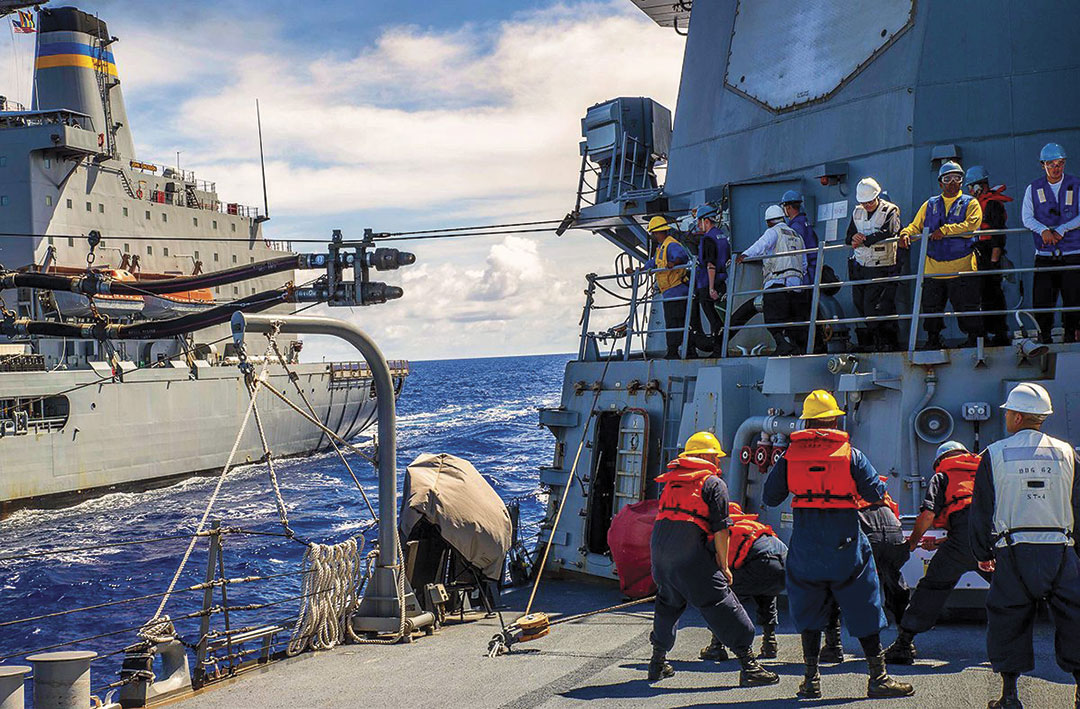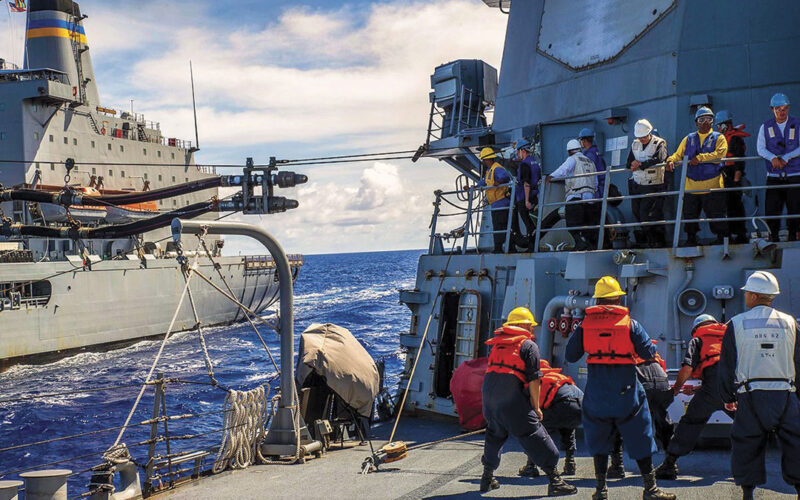
“Egregious” and “irresponsible” is how a consortium of American labor unions, including the Maritime Trades Department, AFL-CIO, is labelling a proposal to create a second level of U.S.-flagged vessels that would be operated by foreign crews.
Such a move, “would outsource American maritime jobs, disregard America’s national security requirements and waste taxpayer dollars,” they charged in a statement countering a new report on the current state of the U.S.-flag merchant marine.
In Rewriting the Future of American Maritime Industry to Compete with China, a report written for the Washington, D.C.-based Hudson Institute, Michael G. Roberts, a senior fellow at the Hudson Institute’s Center for Defense addresses what he sees as “the deficiencies in U.S. sealift capacity amid increased competition from other countries.”
According to Roberts, American commercial shipbuilders and U.S.-flag shipping companies are at a severe disadvantage in international markets, owning only 3 percent of the 55,000 ships in the global commercial fleet as of 2022. He recommended the U.S. reform policies governing America’s commercial maritime industries to protect supply chains and logistics systems and to deter military conflict.
China, wrote Roberts, “produces more than half of the large commercial ships delivered annually, controls scores of seaports in dozens of foreign countries and owns almost one-fifth of the global commercial fleet.”
The CIA World Factbook states that the privately-owned and commercially operated U.S.-flag cargo fleet numbers 393 vessels, or 27th in the world, behind Russia (11th with 1,143 merchant ships) and China (2nd, with 4,052). The figure includes privately-owned ships and the Military Sealift Command vessels operated by the federal government.
Because the American maritime industry is impacted by the labor shortage currently challenging many other industries, Roberts has proposed legislation to create “a new, limited, second U.S.-flag fleet registry that would be under U.S. control and crewed by allied nations,” which would “at minimal cost to taxpayers…and contribute to U.S. national and economic security in other ways, such as improving supply chain security and deterring gray-zone tactics.”
If such legislation is approved by Congress, Roberts stated that “by the end of the decade the U.S.-flag fleet would close the sealift gap and support U.S. economic and gray-zone security.”
American labor unions have pushed back strongly against the idea of foreign crews on U.S.-flag ships, calling the proposal “a threat to the U.S. maritime workforce.”
The Hudson Institute’s Roberts is not the only voice calling for foreign mariners to boost the U.S. shipping presence.
In a recent interview with online Tradewinds news, Sam Norton, CEO of Overseas Shipping Group, the largest U.S.-flag tanker operator, urged the unions to endorse sponsorship of foreign mariners to boost the number of qualified mariners.
In a statement, representatives from the Maritime Trades Department of the AFL-CIO, the Sailors Union of the Pacific, the Seafarers International Union, and other labor groups called the establishment of a second U.S. flag registry “the most egregious proposal in the [Hudson Institute] report,” and stated “taxpayer dollars should not be used to support U.S.-flag vessels that don’t contribute to the pool of civilian mariners and would compromise U.S. security.”
“At this time in our nation’s history, it is imperative that our government act(s) to ensure that our country has the trained and qualified mariners needed by the Department of Defense,” the coalition stated. “It is irresponsible to divert U.S. taxpayer dollars to support and to otherwise encourage the operation of U.S.-flag vessels that do not provide the base of employment necessary to increase and support the U.S. citizen mariner base.”
The labor consortium has urged the Biden administration to reject the proposal and instead, create more opportunities for American maritime workers.
Calls to the AFL-CIO’s Maritime Trades Department seeking further comment were not returned.
In a recent edition of gCaptain, maritime journalist John Konrad linked the shortage of qualified mariners “to low salaries in comparison to other union workers and called for the industry to prioritize the welfare and advancement of mariners, and to push for fair and competitive compensation to ensure the resilience and efficacy of the U.S. maritime maritime sector.”
In real terms, “U.S. maritime captains are earning less today than they were 30 years ago,” he wrote.
“Opportunities on shore, combined with low wages and harsh conditions, are keeping younger workers from signing on to seafaring careers, exacerbating the labor shortage,” stated Konrad.
“The current state of the U.S. maritime industry, particularly the stagnant wages and challenging working conditions faced by American maritime officers, presents a critical juncture and very few incentives for young mariners to remain in the industry over the long term.”

